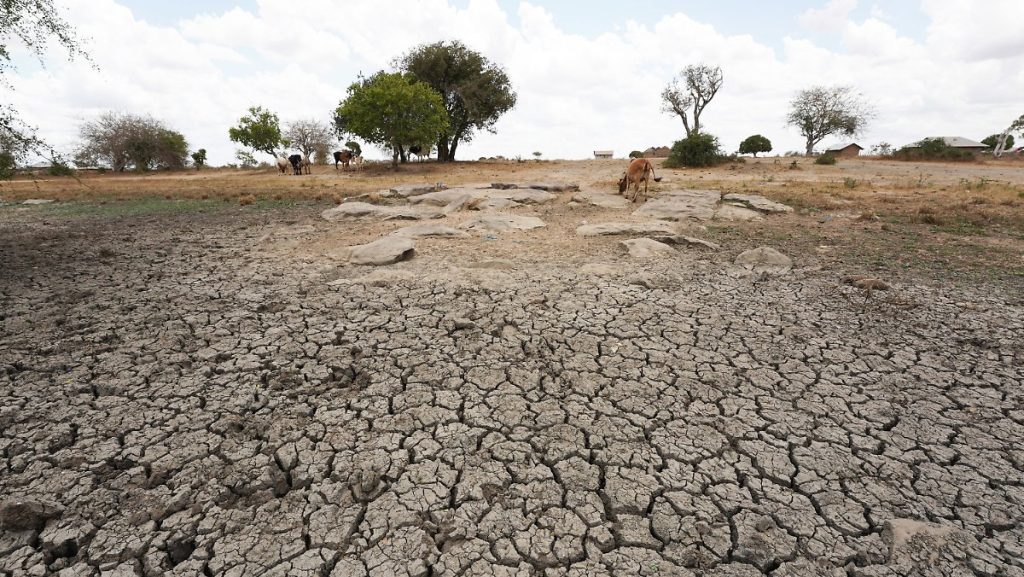Fertile soil turns to dust
UN report: Droughts are increasing and lasting longer
May 11, 2022 at 4:19 pm
There have always been droughts – the Bible already tells us about them. But climate change is exacerbating the situation. A new UN drought report describes the impact on millions of people.
In the past two decades, researchers around the world have recorded more droughts, which have also lasted longer. Global warming is likely to worsen the situation in many regions of the world, as evidenced by the world United Nations drought report Appears. Accordingly, the number and duration of droughts has increased by nearly a third globally since 2000. The report estimates economic damage at $124 billion (117 billion euros) for the period between 1998 and 2017 alone. But while severe water shortages, loss of fertile land and persistent drought have so far mainly affected underdeveloped countries such as the Sahel, other regions are increasingly affected.
“The land is drying up, and the fertile soil is turning to dust,” warned Ibrahim Thiao, Executive Secretary of the International Convention on Soil Conservation (UNCCD) at the 15th World Soil Congress in the capital, Abidjan. “Drought is among the biggest threats to sustainable development.”
The day before, Thiau described the growing droughts in Europe as “an alarm bell for Europeans”. “No country is immune to drought,” he said. When people talk about drought, most people probably think of the spread of desert areas in the Sahel and frequent post-drought famines in the Horn of Africa, for example in Ethiopia and Somalia, where many people have been waiting in vain for months to rain. .
Africa is the worst affected
In fact, according to the report, Africa is affected more by drought than any other continent. The report says more than 300 droughts have been recorded there over the past 100 years. This is 44 percent of droughts worldwide. In addition, sub-Saharan Africa is experiencing the effects of climate change in a dramatic way.
However, 45 major droughts were recorded in Europe in the last century, affecting millions of people and causing total economic damage of $27.8 billion. About 15% of the Earth’s land area and about 17% of the European Union’s population are now affected by drought, according to a UN report. Annual economic losses in the European Union and Great Britain are now nine billion euros annually.
“Every year the world loses an area of fertile soil the size of Bulgaria,” said Jochen Flasbarth, State Secretary of the Federal Ministry for Economic Cooperation and Development (BMZ) in Abidjan. “We have to stop it. Without fertile soil there is no food.”
Drought problems in northeastern Germany
The balance sheets of the German Weather Service showed not only higher temperatures than in previous times, but also less rainfall. For years, farmers have been complaining of drought problems, especially in northeastern Germany. In April, for example, only 25 liters of rain per square meter fell there adding to the lack of precipitation that already exists. subordinate Drought Monitoring from the Helmholtz Center for Environmental Research It already indicates exceptional or severe soil dryness in general in large parts of Brandenburg, but also in the regions of Lower Saxony.
According to the United Nations, nearly 160 million children have experienced severe and prolonged drought this year alone, and more than 2.3 billion people worldwide suffer from a lack of water supply. According to United Nations estimates, by 2040, one in four children worldwide may be affected by water shortages. Everything is clear not on the horizon: in 2050, more than three-quarters of the world’s population could be affected by drought. According to the report, between 4.8 and 5.7 billion people are likely to live in areas where water is scarce for at least one month a year. This currently applies to 3.6 billion people.

“Total coffee aficionado. Travel buff. Music ninja. Bacon nerd. Beeraholic.”







More Stories
Researchers detect extremely high-energy gamma rays
Anxiety disorders in old age increase the risk of dementia
Researchers are particularly fascinated by these exoplanets.